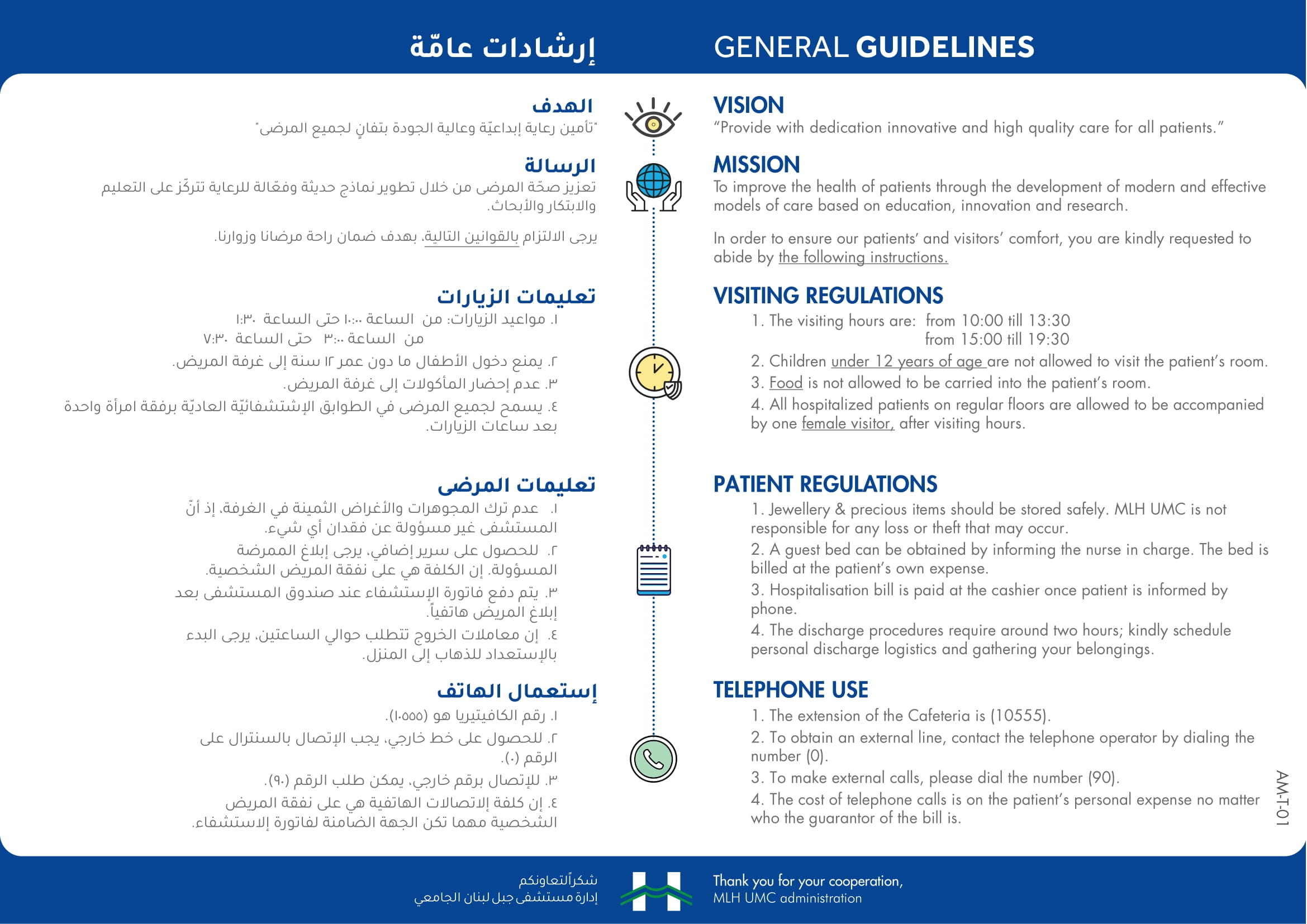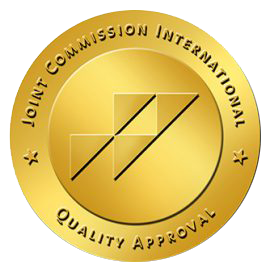Mount Lebanon Hospital is committed to respect and protect the rights of its patients. The hospital will relate to the patients in a way that respects their role in making decisions about their care. Care is given without any discrimination on the basis of religion, sex, race, color, sexual preference, national origin, disability or source of payment.
The hospital will respond to reasonable requests for treatment, and that of course will depend on both the urgency of the situation and the ability of the hospital to provide the kind of treatment the patient’s condition might require.








